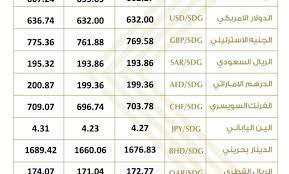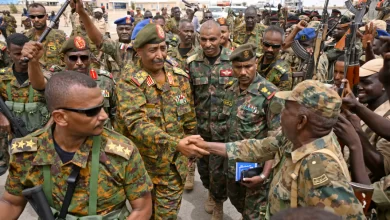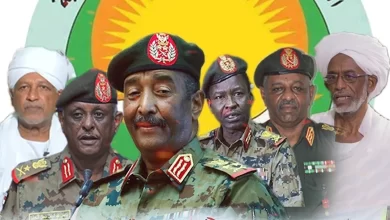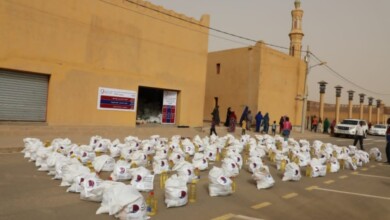The alliance between Armed Movements and Islamists in Sudan is temporary and fragile
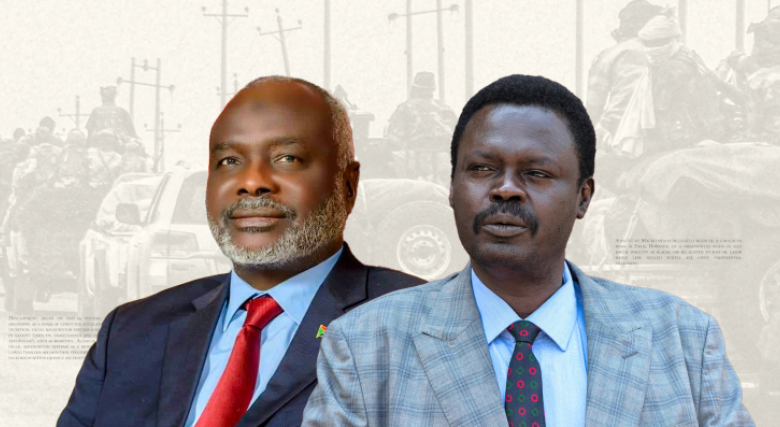
Disagreements have emerged within the alliance between Armed Movements and Islamists within the Sudanese Army, because both parties have an interest in seizing power, and ambitions have emerged with the Islamists’ realization that the leaders of the Movements came to power through a deal, and that it can now be invalidated.
Signs of differences have surfaced between the Armed Movements that sided with the Sudanese Army in the war against the Rapid Support Forces, on the one hand, and influential Islamist groups within it, on the other hand. These signs have appeared in a recent -circulated- discussion regarding the division of power, in addition to statements made by the Governor of Darfur and head of the Sudan Liberation Army Movement, Minni Arcua Minnawi, in which he referred to the fragmentation of Sudan’s Islamists.
During his participation in a political symposium in the French capital, Paris, a few days ago, Minnawi stated that Islamists in Sudan have dispersed into tribes and regions, and that there is no actual presence of political Islam in the country. Although he supported their participation in any dialogue regarding the future of governance in Sudan, he faced numerous criticisms from circles affiliated with the regime of former President Omar al-Bashir.
An increasing number of voices were accusing him of wanting to reap the benefits of participation alongside the Army before the battles with the Rapid Support Forces end.
It is rather clear that Minnawi’s statements, which touched on the necessity of forming a single Army immediately after the end of the war as a condition for achieving stability and democratic rule, always provoke the ire of Islamists who seek to pounce on any arrangements that would reform the Security System following the popular revolution that overthrew Al-Bashir’s regime, because this threatens their control over decision-making centers within the Army leadership, the Armed Movements haven’t been integrated into the Army, despite fighting alongside its elements, which proves the validity of the earlier statement.
Some of those affiliated with the Islamist Movement reminded Minnawi of his rebellion against the Army and the government during Al-Bashir’s rule, and considered his statements a prelude to a new rebellion, if the Movements fail to attain a large share within the country’s power structures, especially since the leadership of the Joint Force is achieving field gains in the Darfur region.
Since last February, the Joint Force of the Armed Movements in Darfur has abandoned the position of neutrality it committed to at the beginning of the war.
A Sudanese journalist close to the Army, named Rashan Oshi, stared in an article published on Saturday that the head of the Justice and Equality Movement, Gibril Ibrahim, and Minni Arcua Minnawi received ($72) million in cash as a price for their participation in the war, as well as pressing for a redistribution of power shares and granting the Armed Movements (50) percent of government seats, which the two Movements have since denied.
Sudanese political analyst, Suleiman Sirri confirmed that the alliance between the Armed Movements and the Islamists is temporary and very fragile and won’t last because both parties have an interest in seizing power, and that the ambitions appeared early with the Islamists’ realization that the leaders of the Movements came to power through an agreement, that they can now invalidate.
The leaders of the Armed Movements caused more problems and disputes with the Civili Forces than with the Military Component
He pointed out to “Al-Arab” that “The presence of the Armed Movements within the structures of power harmed the transitional period and contributed to the coup against the Civil Forces. The leaders of the Movements caused more problems and disputes with the Civil Forces than with the Military Component.”
He explained that “The Armed Movements filled the power vacuum alongside the Army after the October 2021 Coup instead of the Islamists, until the war came and positions changed as the Movements decided to remain neutral, then some of them felt that an alliance with the Army will serve their interests, but after seven months of battles that witnessed the restoration of the Islamic Movement’s presence, indicating the existence of agreements under the table that led to the current alliance, which in turn makes the goal of fighting to achieve the interests of the Movements, not the slogans of dignity and liberation.”
The Sudan Liberation Movement led by Minni Minnawi, the Justice and Equality Movement led by Gibril Ibrahim, and a number of other Movements that signed the Juba Peace Agreement in (2020) announced their abandonment of the neutral position they had previously committed to, and decided to support the Army against the Rapid Support Forces.
Suleiman Sirri stressed in his interview with “Al-Arab” that “As long as the alliance of the Movements and the Army is linked to deals, it is temporary and it isn’t unlikely that the government will fight the Movements once its current war with the Rapid Support Forces ends.”
Moreover, it isn’t unlikely that the wars Al-Bashir fought against the Armed Movements in Darfur will return as fuel to ensure that the model of a democratic State isn’t attained in Sudan, in a way that achieves the goal of draining the revolution and exhausting the country with continuous wars.
Sudan’s Islamists fear achieving peace, as they realize they won’t have a place in power, and the same applies to the Armed Movements, which realize that power will be in favor of the Civil Forces, and the main goal is to remain in power by fueling conflicts and not by achieving stability, which convinces the Sudanese people that the presence of Islamists in power aims to protect the people through the security scarecrow that doesn’t stop.
The presence of the Governor of the Darfur region in France raised many questions in regards to the significance of his statements, indicating pressure on the Army to integrate the Movements within it, which in turn indicates that his signals are receiving attention within the Army, especially since they come at a time when the Armed Movements are proving their ability to achieve military gains, and that the experience of their members makes them a source of strength that the Army is losing at a time when it is trying to tip the balance in its military favor.
The Chairman of the Board of Trustees of the Darfur Bar Association (DBA), Al-Sadig Ali Hassan, stated that “The conflict between the Armed Movements aims to reach power through their agreements that took place with the Islamists, there are intersections between the two parties as a result of the desire to dominate and distribute positions of power.”
He pointed out to “Al-Arab” that “The current timing is appropriate, with the weakness of the political forces and the volatile nature of the military situation, as Minnawi is convinced that there are no forces that have a significant influence in the fighting and he has a desire to expand, without thinking about how to end the war and seek stability.”
He stated that “Manawi’s statements in regards to a unified Army is something that all Sudanese people agree on, provided a complete rebuilding of the Army’s structure takes place and not through the integration of forces that contribute to further dismantle its internal structure, because proceeding with the integration process according to loyalties between the Armed Movements and Islamists fuels problems, and it is important to mobilize the sons of Sudan to join the Armed Forces according to their qualifications and capabilities as well as the Army’s need for them, in order to construct an organized force whose goal is to protect the country, as the conflicting parties cannot establish a unified Army.”
“Al-Arab”

